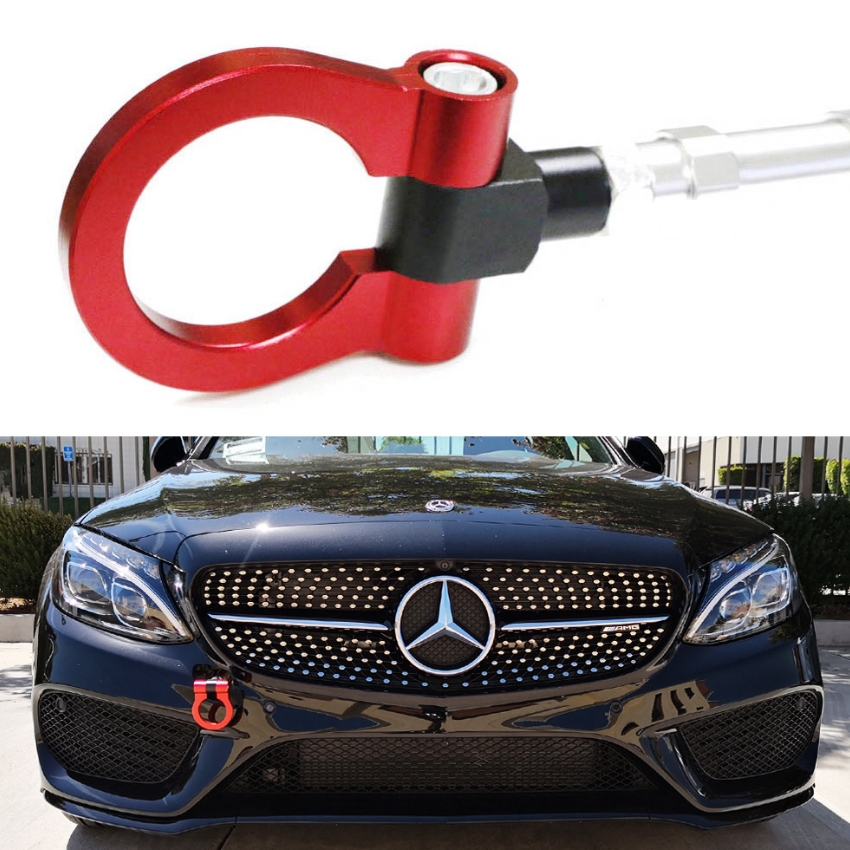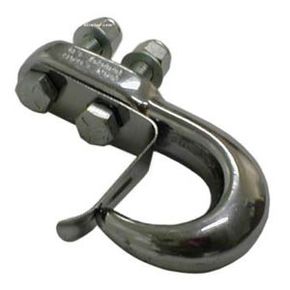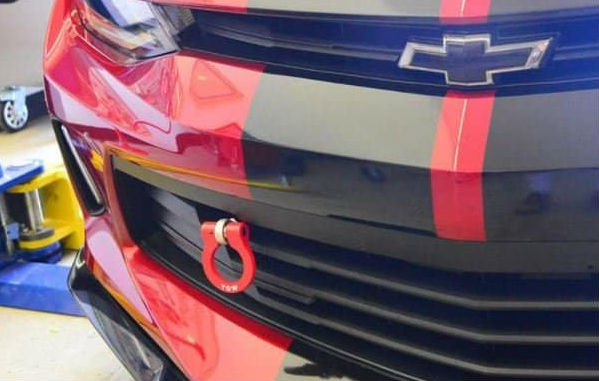Have you ever found yourself stuck on the side of the road, wishing for a quick rescue? Or maybe you’re gearing up for an off-road adventure and need to ensure you’re prepared for unexpected challenges.
Whether you’re a seasoned driver or a newcomer to the world of vehicles, understanding what a tow hook is can be crucial. Tow hooks are the unsung heroes that provide peace of mind when you’re in a jam, offering the promise of a swift recovery.
Imagine the relief of knowing your vehicle can be safely pulled out of a tricky situation, thanks to this simple yet effective tool. Dive into this article to uncover everything you need to know about tow hooks, and empower yourself with knowledge that could be a game-changer for your driving experience.

Credit: tow-hooks.com
Tow Hook Basics
A tow hookis a small device. It helps cars get moved. It is usually at the front or back of a car. Tow hooks are strong and safe. They attach to ropes or chains. This helps pull cars easily. Many cars have them built in. Some cars need extra hooks. Tow hooks are very useful. They are used when cars break down. They help in emergencies. You can find them on big trucks too. Tow hooks are made of metal. This makes them tough. They do not break easily. Always check your tow hook. Make sure it is secure. This keeps everyone safe.
Types Of Tow Hooks
Fixed tow hooks are always visible. They are built into the vehicle frame. These hooks are very strong. They can handle heavy loads. Perfect for tough jobs. They require no setup. Always ready for use. They are common in trucks and SUVs. Not ideal for small cars. They can affect the look of the vehicle.
Detachable tow hooks can be removed when not needed. These hooks offer flexibility. Easy to attach and remove. They are stored in the trunk. Use them only when needed. They keep the car looking neat. Great for occasional use. Not for heavy loads. Ideal for small to medium cars.
Retractable tow hooks hide when not in use. They slide out when needed. Easy to operate. They are common in modern cars. They do not change the car’s look. Perfect for people who need tow hooks sometimes. They handle moderate loads. They provide a clean appearance.
Materials Used
Steel Tow Hooksare very strong. They can handle heavy loads. Steel is tough and durable. It lasts a long time. These hooks are usually heavy. They are not easy to break. Steel hooks are often used in trucks and big cars. They are trusted by many drivers.
Aluminum Tow Hooksare lighter than steel. They resist rust very well. Aluminum is strong but not as tough as steel. These hooks are easier to handle. They are great for lighter vehicles. Many people choose them for their cars. They look shiny and nice.
Composite Materialsare modern. These hooks are made from plastics and fibers. They are very light. Composite hooks can be strong. They are perfect for smaller vehicles. They do not rust. They are popular in racing cars. They are easy to mold into shapes.
Installation Process
Many cars come with factory installed tow hooks. These hooks are strong and ready to use. They are usually found at the front or back of the car. Car makers attach them during production. This makes it easy to tow the car when needed. You don’t need special tools to use them. Just hook and go. It’s that simple!
Some cars don’t have tow hooks from the start. In this case, you can use aftermarket tow hooks. These hooks are bought and added later. A mechanic can help install them. They are attached to strong parts of the car. This ensures they work well when needed. Choose the right size and type for your car. Safety first!
Tow Hook Uses
Tow hooks are vital for vehicle recovery. They help pull cars out of ditches. Tow trucks use them to lift broken cars. They are strong and safe. No damage happens to the car.
Tow hooks are used in trailer towing. They connect trailers to vehicles. This helps in moving heavy loads. The hook holds the trailer tight. It keeps the trailer from slipping.
Off-road trips can be tricky. Tow hooks help when stuck in mud. They provide off-road assistance. Friends can pull you out with ease. They are handy in tough terrains.
Safety Considerations
Tow hooks have specific weight limits. Never exceed these limits. It’s dangerous. Vehicles can get damaged. People can get hurt. Always check the vehicle’s manual. It lists the tow hook’s weight limit. Follow it strictly. Safety first!
Attach tow hooks properly. Incorrect attachment can cause accidents. Ensure it’s tightly secured. Use the right tools. Always double-check your work. Proper attachment keeps everyone safe.
Regularly inspect and maintaintow hooks. Look for rust and cracks. Replace damaged hooks immediately. Clean hooks after use. Proper care extends their life. Safe towing depends on good maintenance.
Choosing The Right Tow Hook
Not all tow hooks fit every vehicle. Check your car’s model first. Some cars need specific hooks. Ask an expert if unsure. A correct fit is vital for safety.
Think about why you need the tow hook. Is it for emergencies? Or maybe for sports? Different uses need different hooks. Plan your purchase carefully.
Set a budget before buying. Tow hooks come in many price ranges. Some are cheap, others costly. Balance quality with cost. Don’t overspend on features you don’t need.
Common Mistakes
Many people install tow hooks incorrectly. This can lead to serious problems. Always use the right tools. Follow the instructions carefully. Incorrect installation can cause the hook to fail. Secure the hook properly. Loose hooks are dangerous.
Tow hooks have weight limits. Exceeding these limits is unsafe. Always check the hook’s capacity. Overloading can cause hooks to break. This can lead to accidents. Use the right hook for the job.
Regular maintenance is crucial. Check your tow hooks often. Look for signs of wear and rust. Replace damaged hooks immediately. Neglecting these checks can be risky. Proper care extends the life of tow hooks.
Tow Hook Accessories
Tow strapsand ropesare essential for pulling cars. They are strong and flexible. Straps are flat and ropes are round. Both are used to tow vehicles safely. Choose the right one for your car. Check the strength before use. Always keep them in your car.
Shacklesconnect your tow hook to the strap. They are made of metal. Shackles are shaped like a U. They are strong and do not break easily. Connectors help link parts together. Both are small, but very important. Keep them in your tool box.
Protective coverskeep tow hooks clean. They prevent rust and damage. Covers fit snugly over the hook. They are made of durable materials. Always use a cover when not towing. This keeps your tow hook ready for use.

Credit: auto.howstuffworks.com

Credit: letstowthat.com
Conclusion
Understanding tow hooks is vital for safe and efficient towing. These simple tools provide reliable support in difficult situations. Always choose the right tow hook for your vehicle. Check your car’s manual for guidance. Proper installation ensures safety and effectiveness.
Keep tow hooks in good condition to avoid accidents. Regular inspection can prevent potential issues. Using tow hooks correctly can save time and effort. They are essential for both everyday drivers and off-road enthusiasts. Equip your vehicle with a tow hook and be prepared.
Safe travels with the right tools on hand!
